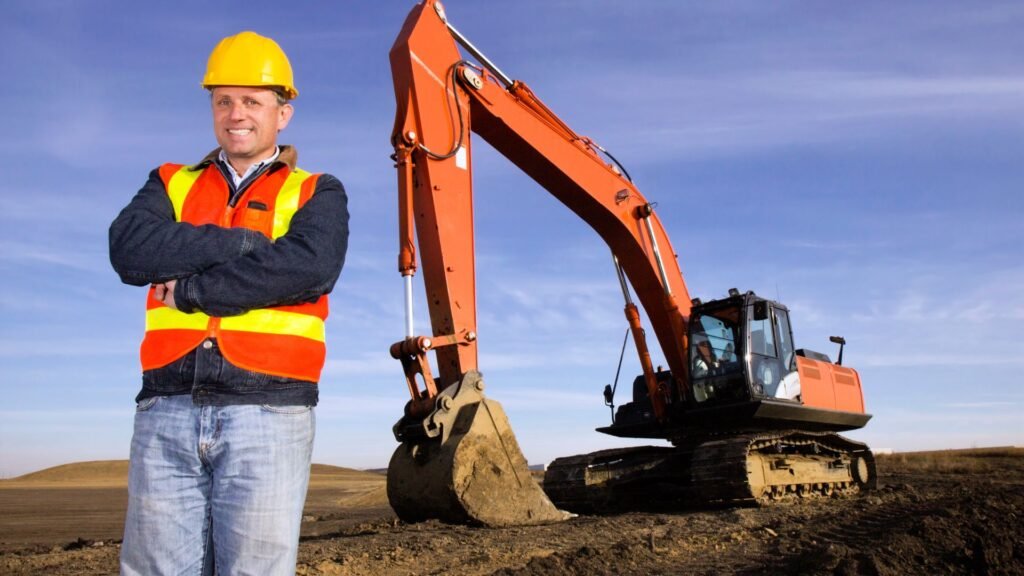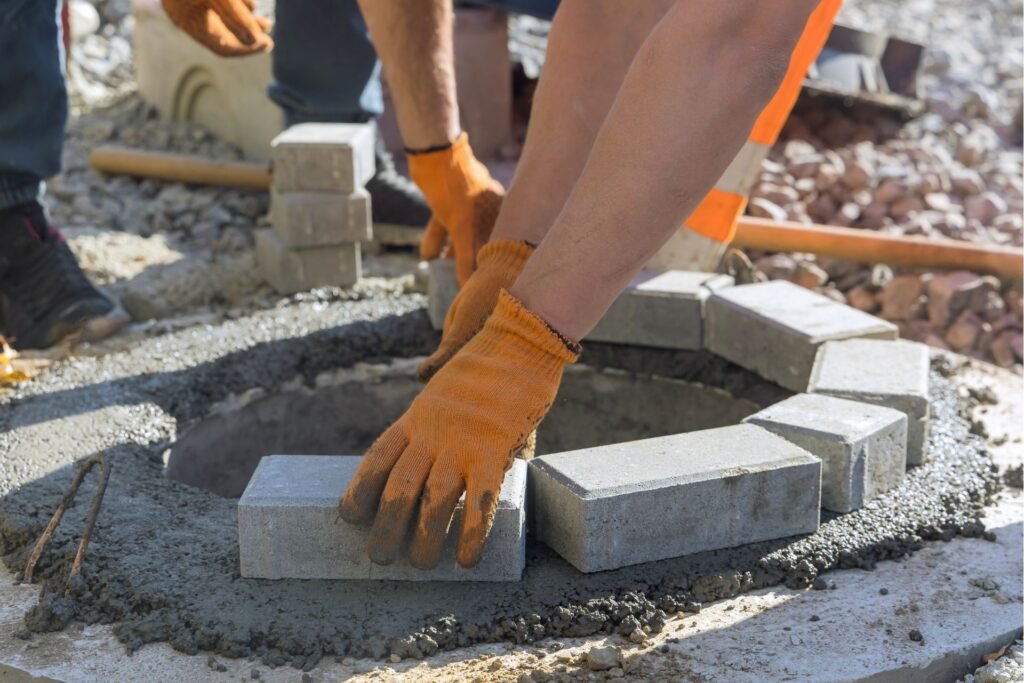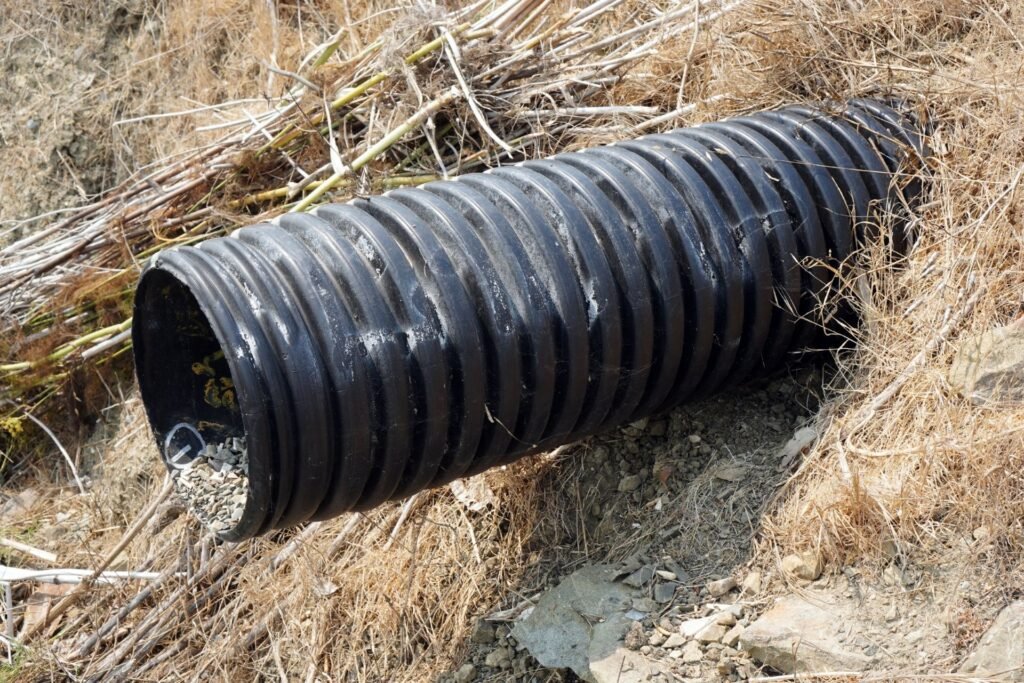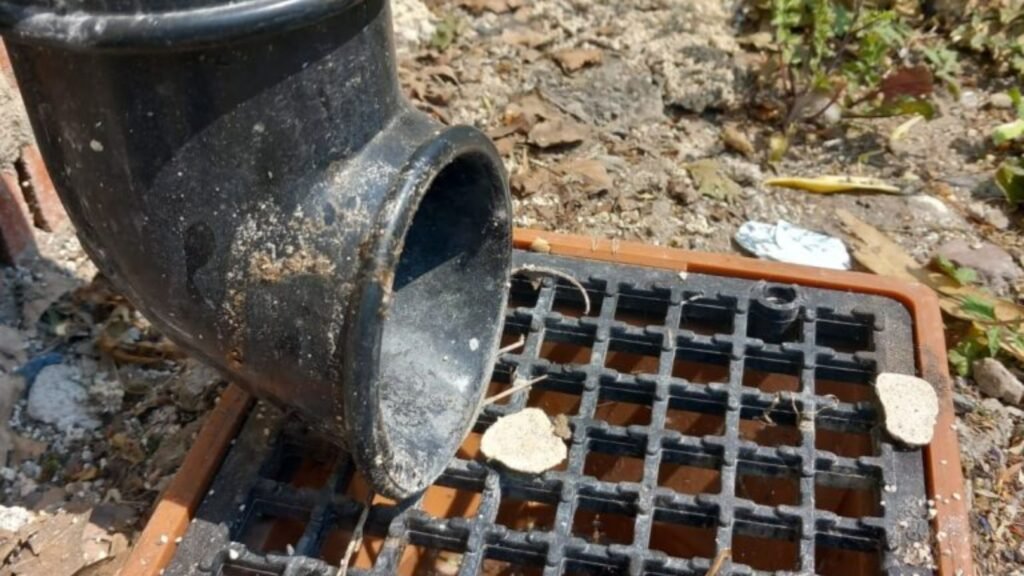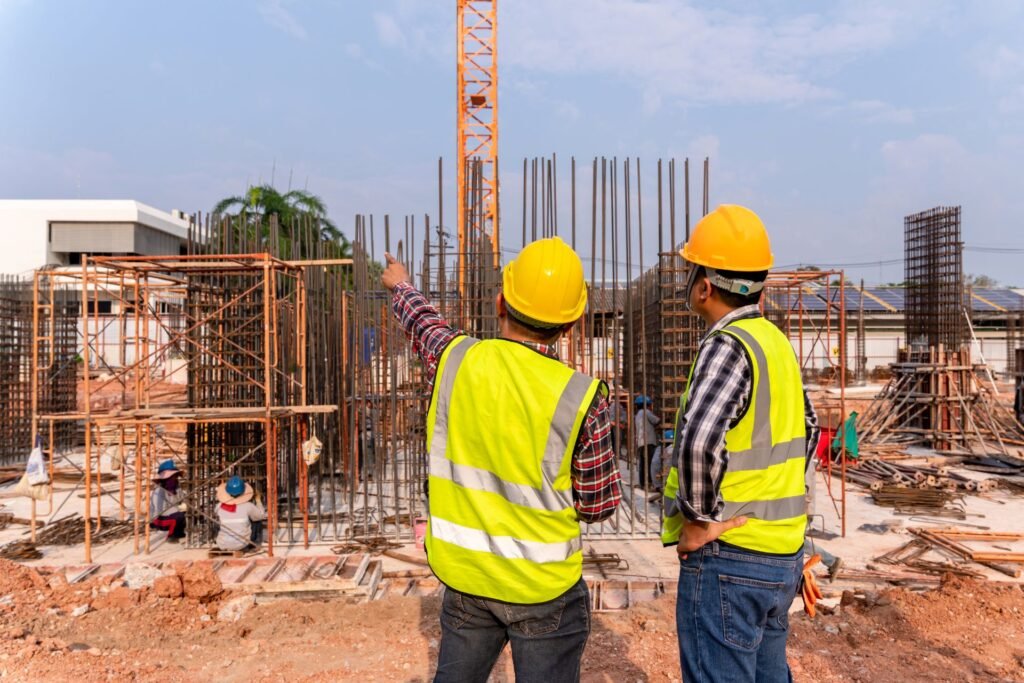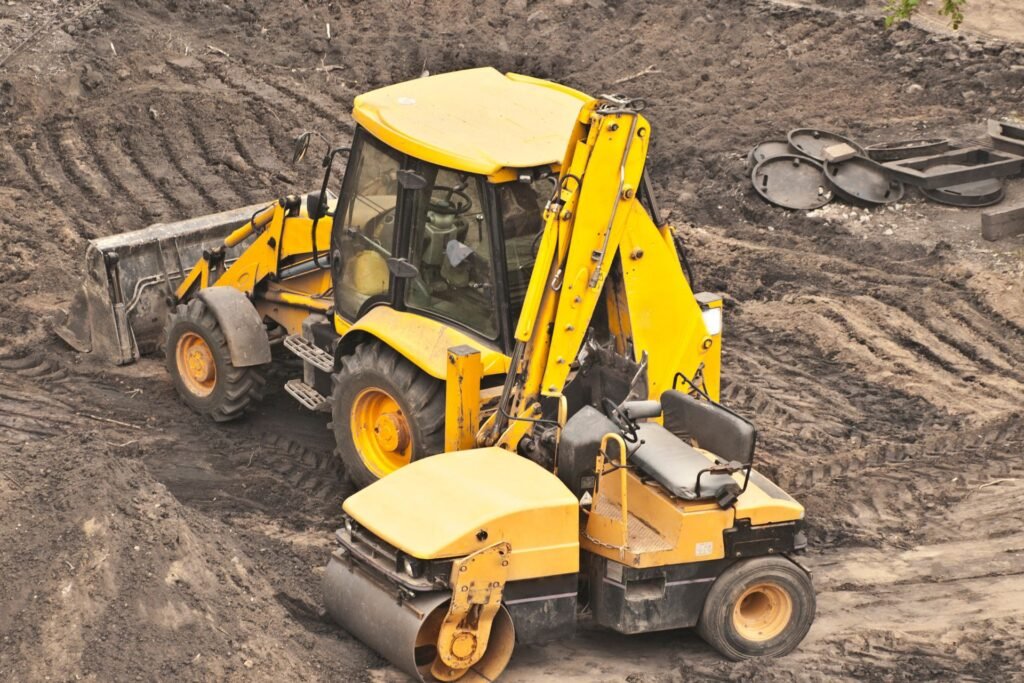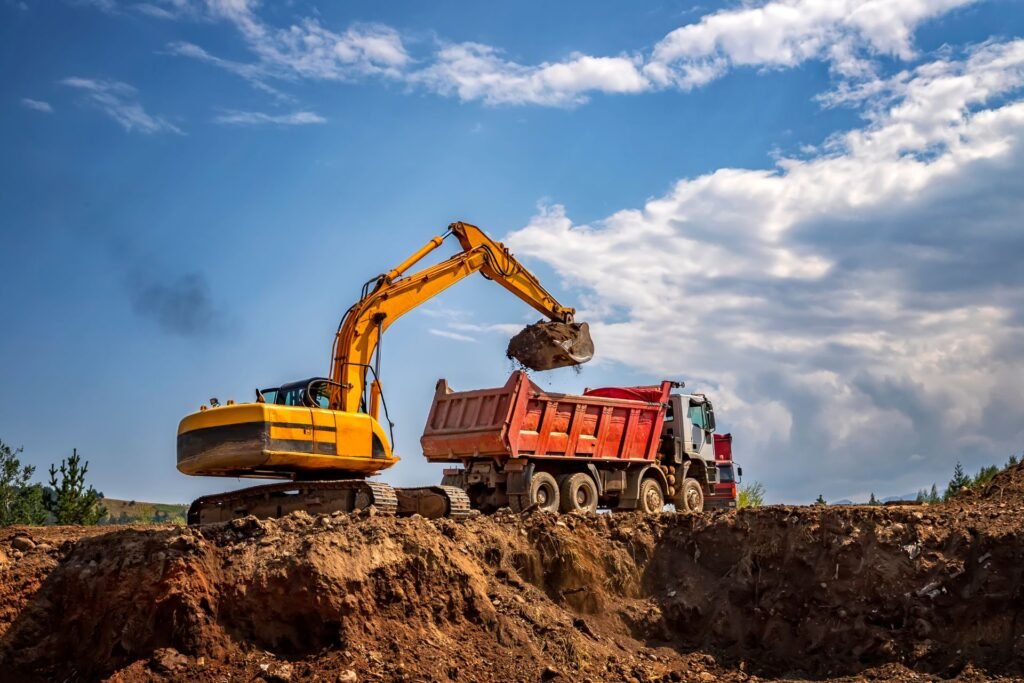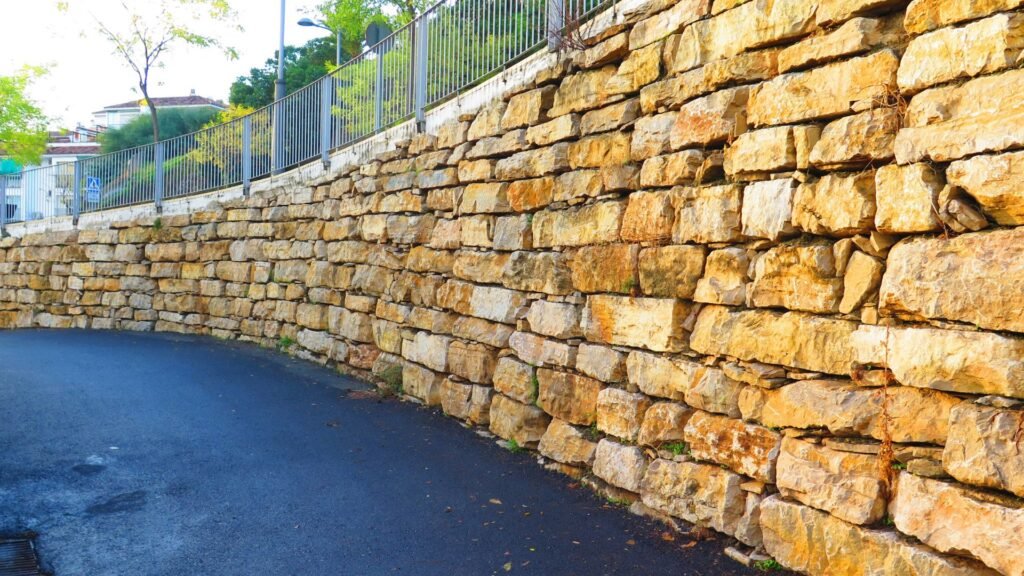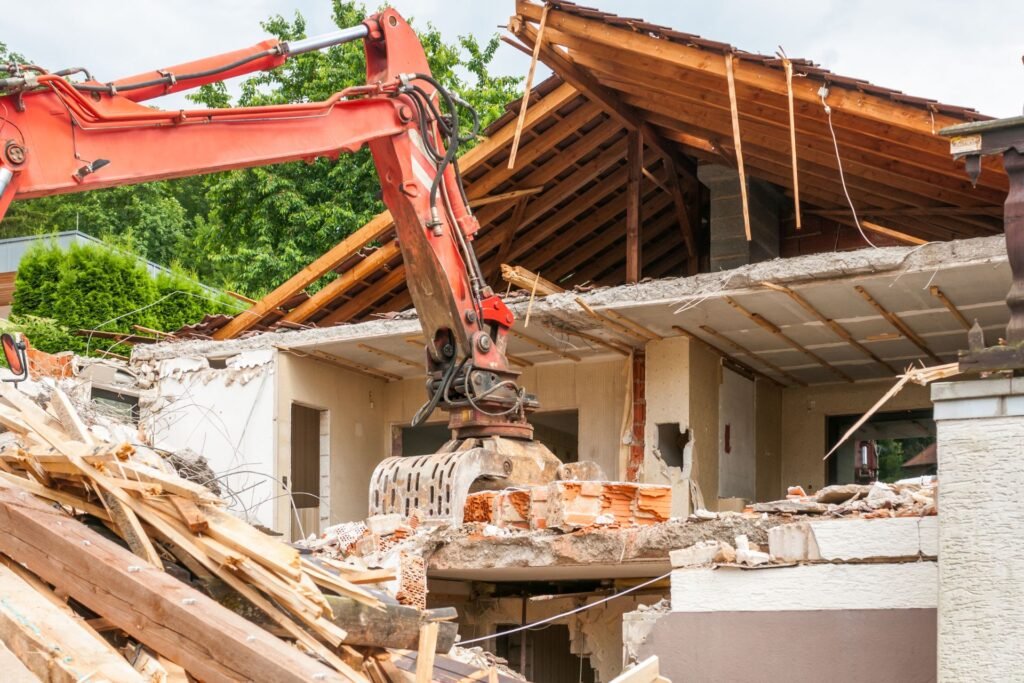Welcome to your go-to guide for understanding digger and operator hire rates in NZ. Whether you’re tackling a backyard project, prepping a site for a driveway, or managing a small construction job, knowing what you’ll pay and why can save you time and money. In New Zealand, rates can vary widely based on location, job size, equipment type, and who you hire. This article breaks down the average costs, what’s included, common add-ons, and how to get the best value for your budget. If you’re planning your next dig, this guide will help you make smarter decisions before booking.
Digger and operator hire rates in NZ typically range from $90 to $150 per hour, depending on the digger size, job complexity, and location. Mini diggers with operators usually start around $90/hour, while standard or larger machines can go up to $200/hour. Prices may also include fuel, transport, and basic attachments, but extra charges can apply.
Table of Contents
What Affects Digger And Operator Hire Rates In NZ?
If you’re planning to hire a digger and operator in New Zealand, understanding what drives the cost can help you set a realistic budget. The final rate you’re quoted isn’t just about the machine, several other factors come into play. Here’s a breakdown of what influences digger and operator hire rates across NZ.
Type Of Digger (Mini, Standard, Large)
The size of the digger directly affects the price. Mini diggers are the most affordable and are ideal for tight spaces, small landscaping tasks, or residential trenching. They typically cost less per hour and are cheaper to transport.
Standard diggers, used for mid-sized projects like driveway excavation or retaining wall prep, fall in the mid-range price bracket. Large or specialized diggers, like long-reach or rock-breaking machines, cost more due to their power, size, and the skills required to operate them. The bigger the machine, the higher the hourly or daily rate.
Location (Auckland Vs Regional Areas)
Where you are located makes a big difference. In places like Auckland, Wellington, or Christchurch, demand is higher, and so are the rates. Urban areas usually have more competition, but also more traffic, site restrictions, and parking challenges, all of which can raise the price.
In smaller towns or rural regions, rates may be slightly lower, but you might pay more for travel or float fees if the operator is coming from far away. Always ask where the operator is based to estimate transport costs.
Duration Of The Job (Hourly, Half-Day, Full-Day, Weekly Rates)
The length of time you hire the digger and operator for will impact the total cost. Hourly rates are common for short, simple jobs, but they can add up quickly if the job runs longer than expected.
For larger projects, half-day, full-day, or weekly bookings offer better value. Many operators offer discounted rates for full-day or multi-day hires. Always ask for a breakdown; some jobs may look expensive per hour, but turn out cheaper when booked for a full day.
Site Accessibility And Job Complexity
Is your jobsite flat, open, and easy to reach? Or is it on a steep hill with limited access? These details matter. If the operator needs to maneuver in tight spaces, work on a slope, or dig near utilities or structures, the job becomes more complex and more expensive.
Tougher jobs require more skill, careful handling, and possibly different attachments. That complexity often means higher rates or longer hiring times.
Operator Experience Or Special Licensing Needs
Experienced operators with solid reputations tend to charge more, and for good reason. They work faster, make fewer mistakes, and handle challenges better on-site. If your job requires specific certifications or safety training, this could also raise the rate.
For example, operating near underground cables, working on commercial sites, or handling large-scale drainage may require additional qualifications. Ask about the operator’s background to make sure you’re getting someone skilled and insured for the work.
Travel, Fuel Surcharges, Or Transport Fees
Many people overlook this part, but it’s common for hire companies to charge extra for transporting the digger to and from your site. These are often called float fees. The further your property is from the provider’s base, the higher the cost.
Fuel surcharges may also apply, especially for full-day or remote jobs. Some operators include fuel in their rate, while others add it separately. Make sure this is clarified in your quote, so there are no surprises when the bill arrives.
Understanding these factors puts you in a better position to compare quotes, ask the right questions, and avoid hidden charges. Before you book, take a few minutes to assess your site, define the scope of your project, and check what kind of digger you really need. That way, you’ll only pay for what helps get the job done.

Average Hire Rates Across NZ
When it comes to hiring a digger and operator in New Zealand, prices can vary depending on the size of the machine, the nature of the work, and where you’re located. Understanding the average hire rates helps you plan better and avoid any surprises on your invoice. Below is a breakdown of what you can typically expect to pay when hiring a digger with an operator across different parts of the country.
Mini Digger With Operator: $90–$120 Per Hour
Mini diggers are ideal for tight spaces, small landscaping jobs, and light trenching. They’re often used for residential work where larger equipment can’t fit. Because they’re compact and less powerful, they cost less to hire. Rates typically range from $90 to $120 per hour, including an experienced operator.
Example use cases:
- Backyard drainage trench
- Small garden bed preparation
- Light excavation around tight access points
Standard Digger With Operator: $110–$150 Per Hour
Standard-sized diggers are the most common for medium-sized jobs like driveway prep, foundation digging, or site clearing. These machines have more power and flexibility, making them suitable for both residential and light commercial use. Average hire rates fall between $110 and $150 per hour with an operator included.
Example use cases:
- Driveway excavation
- Retaining wall footings
- Pool site prep
Large or Specialized Digger: $150–$200+ Per Hour
Heavy-duty or specialized diggers (like long-reach excavators or machines with advanced attachments) are usually required for commercial jobs, large-scale earthworks, or challenging terrain. These machines demand more skill and carry a higher operational cost, so you can expect to pay $150 to $200+ per hour, depending on the complexity of the task.
Example use cases:
- Bulk earthmoving
- Foundation work on steep or unstable land
- Deep trenching for utility lines
Regional Price Differences
Hire rates aren’t the same across all of New Zealand. Where you’re located can impact what you’ll pay, especially when it comes to travel time, demand, and competition.
Here’s a general look at how rates can differ:
- Auckland: Higher demand and traffic lead to premium pricing. Expect to pay at the top end of each price range.
- Wellington: Slightly lower than Auckland, but still above the national average.
- Christchurch: Competitive pricing due to a mix of residential and commercial demand.
- Regional Towns: More affordable rates, especially if you’re hiring a local operator and avoiding travel fees.
Skimmable Summary of Rates
| Digger Type | Average Hourly Rate | Best For |
| Mini Digger + Operator | $90–$120 | Small spaces, landscaping, and trenching |
| Standard Digger + Operator | $110–$150 | Driveways, footings, and light site works |
| Large/Specialized Digger + Operator | $150–$200+ | Commercial projects, bulk excavation |
Real-World Example
Digging out a small driveway in Hamilton using a standard digger with an operator may cost you anywhere from $500 to $700 for a full day’s work. This typically includes the machine, operator, and basic fuel usage, but always confirm what’s covered before booking.
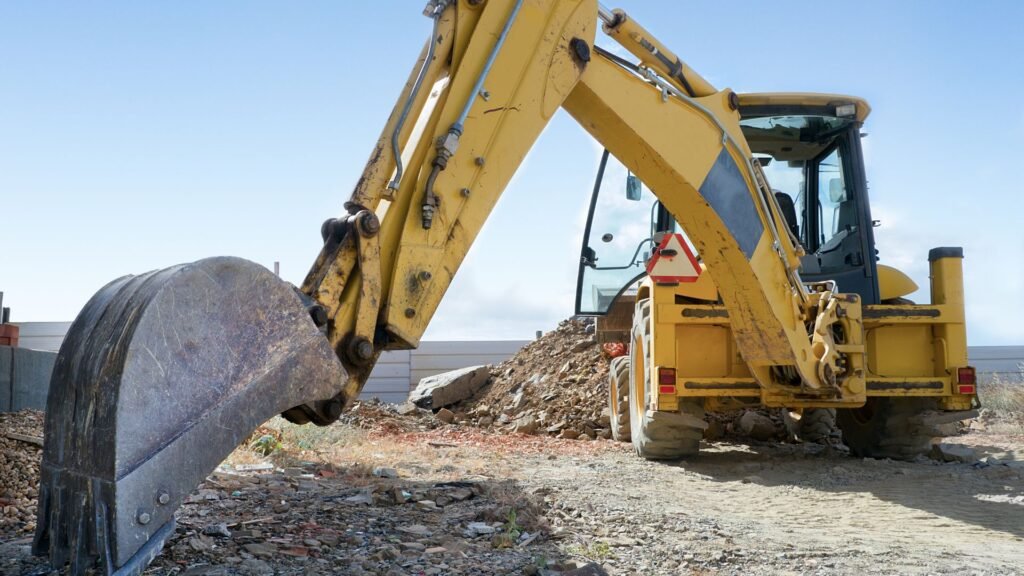
What’s Usually Included In The Rate?
When you hire a digger and operator in New Zealand, the hourly or daily rate often covers more than just the machine. But not every company includes the same things, which is why it’s worth knowing what you’re actually paying for. Here’s a breakdown of what’s usually included and what might come as an extra.
- Operator Labor
The rate typically includes a skilled operator who knows how to handle the machine safely and efficiently. This isn’t just someone moving dirt, they’re trained to work in tight spaces, follow safety protocols, and complete your job with precision. Their experience directly affects the speed and quality of the work, so this part of the cost often carries real value. - Machinery Costs
The digger itself is a big part of the rate. Whether it’s a mini digger or a standard-sized machine, you’re paying for its availability, maintenance, and wear-and-tear. Most providers maintain their machines regularly, so the price also reflects reliability; fewer breakdowns mean less downtime for your project. - Fuel (Sometimes)
Some hiring companies include fuel in the hourly or daily rate, while others charge it separately. If the rate includes fuel, it’s usually for standard use over the expected job time. For longer or more intensive jobs, fuel might be billed on top. Always confirm this ahead of time to avoid surprise charges. - Basic Attachments
Most jobs require more than just a standard bucket. Depending on the task, the rate may cover basic attachments like trenching buckets, tilt buckets, or small augers. If your job needs something more specialized, like a rock breaker or post-hole borer, it could come with an extra charge. - Transport To/From Site (May Be Extra)
Moving heavy equipment isn’t free. Some providers include transport in their rate if the job site is nearby. Others charge a separate float or delivery fee, especially if the site is outside their standard service area. If your location is rural or hard to access, ask if this cost is included in your quote.
Tip: Always ask for a full quote in writing. That way, you’ll know exactly what’s included and what’s not before the job begins. Clear communication upfront saves money and avoids stress later.

Hidden Costs To Watch For
When hiring a digger and operator in New Zealand, the hourly rate is just one part of the cost. Many people overlook extra fees that can quickly add up if you’re not careful. Before you lock in a quote, ask about these common hidden charges to avoid surprise costs on your final bill.
Float Or Transport Fees
This charge covers the cost of moving the digger to and from your site. It’s often based on distance, so if you’re hiring a company located far from your property, expect to pay more. Some providers include this in their rate, while others charge separately, sometimes $80 to $150 or more. Always ask whether the float fee is part of the quote or added afterward.
Fuel Surcharges
Digger hire doesn’t always include fuel. Some companies will charge you based on how much fuel is used during the job. Others apply a flat fuel surcharge to cover running costs. If fuel is not mentioned in the quote, you could be hit with an extra charge once the job is done. Clarify this before booking, especially for longer or high-use jobs.
Standby Or Idle Time Charges
If the operator is on-site but can’t work, due to bad weather, delays, or site issues, you may still be charged. This is known as standby or idle time. Rates for idle time can be the same as normal work rates, depending on the provider. Make sure you have your site prepared and ready to go before the operator arrives to avoid paying for downtime.
Damage Liability
Accidents happen. If the machine is damaged during use, even with an operator, you might be responsible for the cost, unless the hire company covers it under their insurance. Always ask what happens if something breaks. Are you covered? Is there an excess to pay? Getting this clear upfront protects you from unexpected bills later on.
GST (Included Or Not?)
This is one of the most common areas of confusion. Some operators quote prices including GST, while others do not. A rate of $120 per hour might sound reasonable, until you’re billed $138 with GST added. Always confirm if the price you’re given is GST-inclusive. This is especially important if you’re comparing multiple quotes.
Knowing these potential extras puts you in a stronger position to compare digger hire options fairly. Always ask detailed questions, get quotes in writing, and check the fine print before committing.

Tips To Get The Best Value For Your Budget
Hiring a digger and operator in New Zealand isn’t cheap, so it makes sense to get the most out of every dollar you spend. Whether you’re digging a trench, prepping for a driveway, or clearing a section, smart planning can lead to real savings. Here’s how you can stretch your budget without cutting corners.
Book Local Operators To Cut Down Travel Costs
Many digger hire companies charge extra for travel time or transportation of the machinery to and from your site. These “float fees” can quickly add up, especially if the operator is based far from your location. By hiring a local contractor, you reduce or eliminate those charges. It also means the operator knows the local terrain and council requirements, which can speed things up on-site.
Combine Jobs To Make Full Use Of The Time
If you’re paying by the hour or day, make sure you’re using that time wisely. Instead of hiring a digger for one small task, think about other jobs the machine can handle while it’s on-site. For example, if you’re digging footings, could you also level a driveway or clear a section? Planning ahead and bundling tasks into one session helps you get more work done for the same cost.
Be Clear With Your Scope To Avoid Surprise Charges
One of the easiest ways to blow your budget is through miscommunication. Be specific about what you need before the operator arrives. Give clear instructions, share site access details, and let them know about any underground utilities or obstacles. If the operator arrives and finds unexpected issues, you may be billed for delays, idle time, or extra equipment.
Ask For Quotes In Writing
Always request a written quote that breaks down all expected costs. This should include the hourly rate, any travel fees, minimum booking times, and extras like fuel or attachments. A written quote protects you from unexpected charges and gives you something to reference if the final invoice doesn’t match what you agreed on.
Compare Multiple Providers
Don’t settle for the first quote you receive. Prices and services can vary between contractors. Reach out to at least three local companies, ask about their experience, and compare the details, not just the hourly rate. A cheaper rate might not include essentials like attachments or insurance. By comparing providers, you get a clearer picture of what’s fair and find the best match for your project and budget.
These tips help you avoid hidden costs, get more done, and make smarter choices when hiring a digger and operator in NZ. Taking the time to plan and compare could save you hundreds by the end of the job.
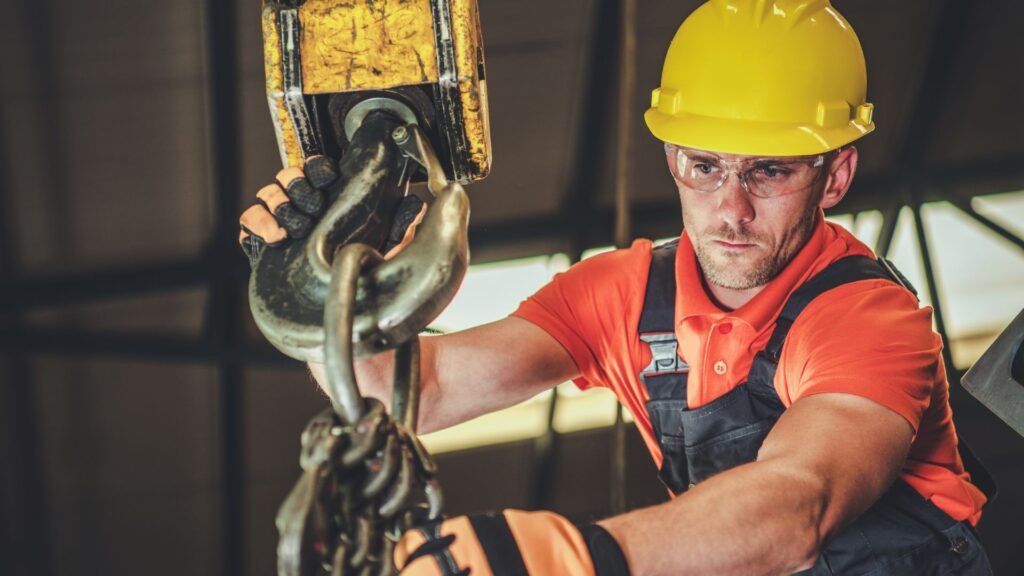
When To Hire A Digger + Operator Vs Just The Machine
Hiring a digger is a smart move for many outdoor projects, but the big question is, should you go for the machine alone or pay extra for an operator too? The answer depends on your skill level, the job requirements, and the site conditions. Below is a breakdown to help you decide what’s right for your situation.
When Hiring An Operator Is Worth The Extra Cost
- Steep Or Uneven Terrain
If your site is sloped, muddy, or difficult to access, controlling a digger can be dangerous without proper training. A skilled operator knows how to manage these conditions safely and efficiently. They can also reduce the risk of property damage or accidents, which could end up costing more than the operator fee. - Jobs That Need Precision
Need to dig near pipes, fences, or building foundations? Precision matters. Experienced operators can maneuver the digger with accuracy to avoid damage and complete the task neatly. This is especially helpful for drainage trenches, footings, and tight-access jobs. - You’re Short On Time
Doing it yourself might sound cost-effective, but it’s time-consuming if you’re not familiar with the controls. Hiring an operator lets you focus on the bigger project or move on to other tasks while the digging gets done quickly and correctly.
When Self-Use Might Be Enough
- Simple Trenching Or Landscaping
If you’re planning a basic trench for irrigation or prepping a garden bed, hiring just the machine can be enough. Tasks that don’t require advanced skills or complex maneuvers are ideal for DIY if you’re comfortable handling machinery. - You’ve Got Experience Or A Helping Hand
Have you operated a digger before? Or do you have someone who has? If so, dry hire (machine only) could work. Just make sure you’re confident in using the equipment safely and understand the scope of your job.
Before you choose, talk to your local hire company. Describe your site, job type, and comfort level with the machine. Most will give honest advice to help you avoid wasting time or money.
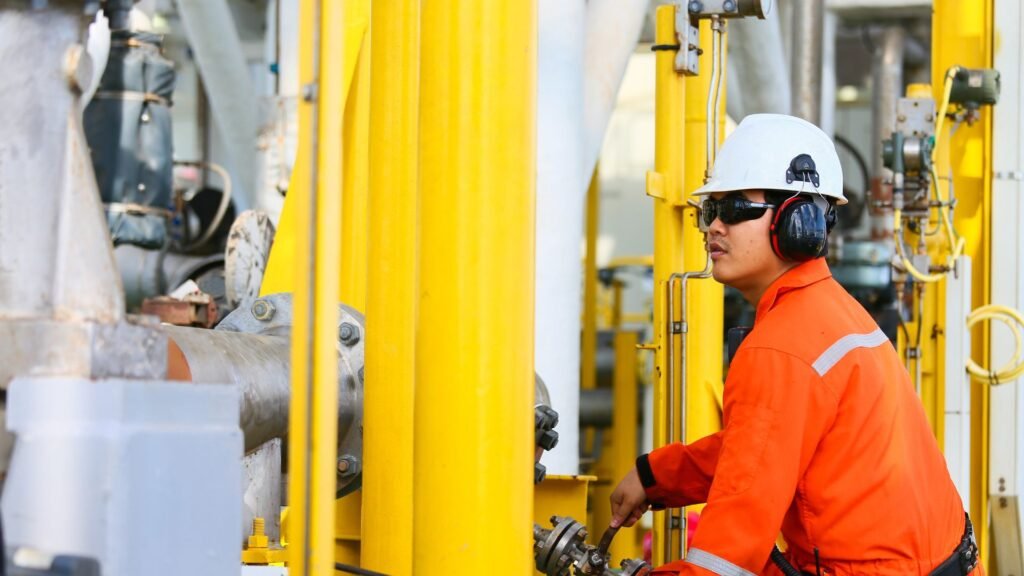
How To Choose The Right Hiring Company
Choosing the right digger and operator hire company in New Zealand can save you money, reduce stress, and ensure your project runs smoothly. With so many providers offering similar services, it’s easy to feel overwhelmed. But with a bit of research and a few key checks, you can avoid costly mistakes and hire a team you can trust. Here’s what to look for before making a decision.
Read Reviews And Check References
Start by checking online reviews on platforms like Google, Facebook, or local directories. Focus on feedback about punctuality, communication, and job quality. Consistent 4–5 star reviews from verified customers are a good sign. If a company has limited online feedback, don’t hesitate to ask for references. A reliable operator should be willing to connect you with past clients or show photos of completed work.
Make Sure They’re Insured And Licensed
Never hire a company that isn’t properly insured or licensed. If anything goes wrong on-site, such as equipment damage or an injury, you could be held liable. Ask for proof of public liability insurance and make sure the operator holds the right endorsements or qualifications for the type of machinery they’ll be using. This step is often skipped, but it’s one of the most important for protecting yourself legally and financially.
Ask About Previous Similar Projects
Experience matters, especially for complex jobs like foundation digging or tight-access work. Ask if they’ve handled projects similar to yours. A provider who understands the scope and challenges of your job is more likely to complete it efficiently and without delays. Their past experience can also help you avoid common pitfalls that inexperienced operators might miss.
Ensure Transparent Pricing
Before you agree to anything, get a written quote. It should clearly state what’s included: machine hire, operator time, fuel, travel, and any attachments. Some companies might offer low base rates but charge extra for items like float fees or fuel. Make sure there are no hidden costs. If something’s unclear, ask. A reputable provider will walk you through the quote and explain each line item in plain language.
Hiring the right digger and operator isn’t just about price, it’s about reliability, safety, and results. Do your homework, ask smart questions, and always trust your instincts. If something doesn’t feel right, keep looking. The right company will make your project easier, not harder.
Ready to hire a digger and operator in NZ? Visit us to get a fast quote, compare options, and get your project moving today.

FAQs: About Digger And Operator Hire Rates NZ
What is the average cost to hire a digger and operator in NZ?
The average cost ranges from $90 to $150 per hour. Mini diggers usually cost less, while larger machines with skilled operators can cost more. Location, job duration, and machine type all affect the price.
Are digger hire rates the same across all of New Zealand?
No. Rates in Auckland and other major cities tend to be higher than in smaller towns. Travel costs, demand, and regional competition influence pricing.
What’s usually included in the hire rate?
Most rates include the machine, a licensed operator, and basic attachments. Some companies may include fuel and transport, while others charge extra.
Is there a difference between dry hire and wet hire?
Yes. Dry hire means you rent the machine only. Wet hire includes both the machine and an operator. Wet hire is better for complex or time-sensitive jobs.
Do I need a license to operate a digger myself in NZ?
For most private projects on your own property, a license is not legally required. But experience is essential for safe use. Commercial projects may have different rules.
Are there any hidden fees I should watch out for?
Yes. Common extras include fuel surcharges, travel fees, float/transport costs, and standby time. Always ask for a full breakdown before booking.
How long can I hire a digger and operator for?
You can usually hire by the hour, half-day, full-day, or even weekly. Longer bookings may come with discounted rates.
Can I book a digger and operator on short notice?
Some providers offer next-day or even same-day service, but availability depends on location and demand. Booking ahead is best during busy seasons.
What kind of jobs can a digger and operator handle?
They’re commonly used for site clearing, trenching, driveway prep, retaining wall digging, landscaping, and foundation work.
How can I get the best value when hiring a digger and operator?
Compare quotes from local providers, combine tasks into one booking, and communicate your needs clearly to avoid delays or extra charges.
Conclusion
Hiring a digger and operator in NZ can be a smart investment when you understand what affects the cost and how to get real value for your money. From hourly rates and machine types to travel fees and job complexity, every detail can influence your final bill. That’s why it pays to compare different providers, ask for a clear quote, and check what’s included before booking. Don’t be afraid to ask questions or request a breakdown of costs; transparency helps you avoid surprise charges and ensures you get the right service for your project. If you’ve recently hired a digger and operator or are planning to, share your experience or reach out for a tailored quote to make sure you’re getting the best deal.
About the Author:
Mike Veail is a recognized digital marketing expert with over 6 years of experience in helping tradespeople and small businesses thrive online. A former quantity surveyor, Mike combines deep industry knowledge with hands-on expertise in SEO and Google Ads. His marketing strategies are tailored to the specific needs of the trades sector, helping businesses increase visibility and generate more leads through proven, ethical methods.
Mike has successfully partnered with numerous companies, establishing a track record of delivering measurable results. His work has been featured across various platforms that showcase his expertise in lead generation and online marketing for the trades sector.
Learn more about Mike's experience and services at https://theleadguy.online or follow him on social media:

